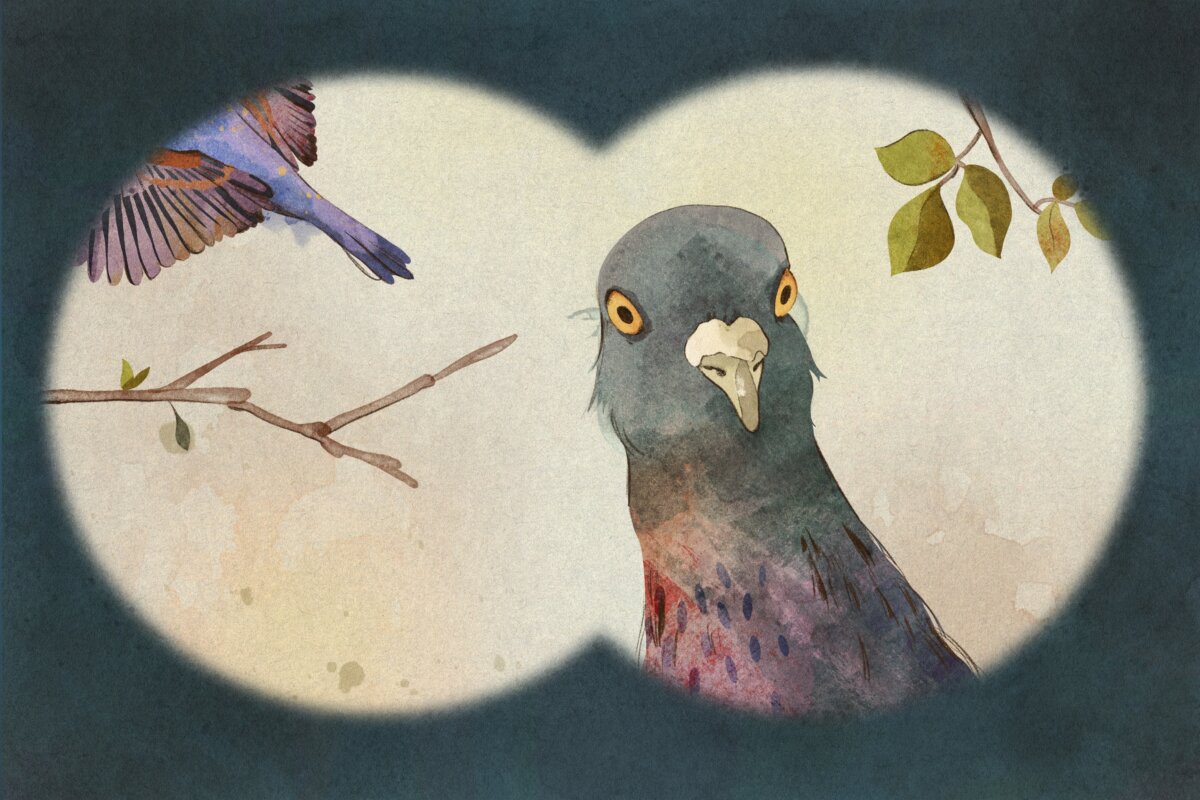Why Everyone You Know Is Suddenly a Birder [View all]
Why Everyone You Know Is Suddenly a Birder
A pandemic pastime has grown into something deeper
by Julia Zarankin

Illustration by Julieta Caballero
Updated 8:20, Jul. 11, 2025 | Published 6:30, Jul. 11, 2025
I can trace my personal descent into what science journalist Ed Yong calls “birder derangement syndrome” back to when I started referring to myself as a “sewage lagoon aficionado.” It wasn’t just that I had taken to setting my alarm for 4 a.m. during spring migration to be in position just in time for the peak dawn chorus, or that I was cancelling all non-bird-related social engagements in May, but that I had started planning vacations around proximity to wetlands and sewage lagoons to maximize roving insect populations, which translate into bird sightings.
I wasn’t always like this. I used to be what some might call a “normal person”—waking up at civilized hours, going to the movies, and wearing something more presentable than ultraviolet-safe hiking pants with a bird-themed T-shirt, trail shoes, and a Tilley hat. But I’ve realized that I’m at my best when I’m birding: curious, my sensory antennae on high alert, attuned to the nuance and detail of the world around me, fully present. I agree with Yong that birding is “more meditative than meditation.”
All of that is true. And then I get a notification from the Ontario Rare Bird Alert on the Discord app on my phone, announcing that my nemesis bird—the blue grosbeak—has just been spotted about an hour’s drive from Toronto. Any semblance of Zen birding and embracing the philosophy of calm appreciation dissipates, and I start scheming about how to postpone work meetings to carve out a window to get to the bird as quickly as possible. For me, birding is an emotional business, and technology has only increased the sense of FOMO I now feel because, for the first time, we know exactly what we’re missing.
Birding has experienced a surge in popularity over the past decade, in part due to the pandemic, which forced so many of us outside (or to stare through our windows at the world outside) while also illuminating the inequities around access to outdoor spaces. Statistics Canada estimates that in 2021, 11 percent of households participated in birdwatching, and that number is undoubtedly higher today. Technology has certainly made birding more accessible: the free Merlin Bird ID app, developed by Cornell Lab of Ornithology, identifies birds by photos and songs with incredible (but not total) accuracy; the free Audubon Bird Guide app helps build birding skills through identification filters and pointers; Larkwire facilitates learning birdsong through interactive quizzes; and logging sightings in the app eBird turns amateur birders into citizen scientists. In 2024 alone, the Merlin app welcomed 7.5 million new users.
Snip...
https://thewalrus.ca/birding/